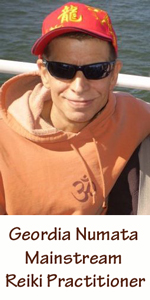What does Mainstreaming Reiki mean to you?
As Reiki practitioners, I think we all have a desire to share the gift of Reiki with our families and communities. We want everyone, without exception, to have the opportunity to learn about Reiki and experience its benefits. Thankfully, we live in a time when there are abundant opportunities to share Reiki in a wide range of settings in our communities and we can do this as volunteers, Reiki teachers and professional practitioners.
Where have you practiced that you would consider mainstream?
My practice is based in a very busy midtown wellness center where a wide variety of services, classes and events are offered. Many of the clients are partaking of our services as an adjunct to their medical care, often on the advice of their doctors.
I have also been providing Reiki and ear acupuncture at the Lower East Side Harm Reduction Center for five years and I am the Reiki team leader for the monthly free clinic for recovery from addictions at Third Root Community Health Center in Ditmas Park, Brooklyn.
In addition to this, I am one of the founding members of Healer2Healer, a group that has brought acupuncturists, Reiki practitioners and body workers to Guatemala and Peru where we have have provided under-served indigenous populations with free community clinics and training in Reiki, ear acupuncture and Chinese medicine.
To mainstream Reiki, what steps can you suggest to the Reiki community?
In order to mainstream Reiki, we need to find venues in our communities where the need for and value of Reiki is both recognized and welcomed. The opportunities to do this are increasing exponentially as more and more people from all walks of life experience the benefits of Reiki. This is happening in a wide variety of settings including hospitals, hospices, wellness centers, community clinics, private treatments, Reiki circles and Reiki classes.
What do you see on the horizon for Reiki?
I see a bright future for Reiki and I am especially excited about the prospects for more abundant support and funding for holistic and integrative low-cost community clinics as we shift into a more benevolent economic paradigm.

